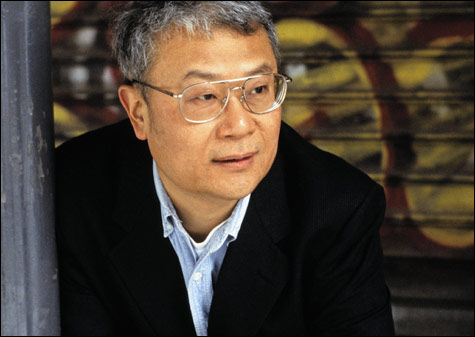
KEEPING IT SHORT: Boston writer Ha Jin returns with a book of stories. |
This fall brings fiction and poetry lovers new treats from old friends. There are novels by Margaret Atwood and Philip Roth, short stories by Kazuo Ishiguro, a new work by Vladimir Nabokov, and new collections of verse by John Ashbery and Philip Levine.
Something new by VLADIMIR NABOKOV? In fact, at his death in 1977, the great author left behind a rough draft of his next work on 138 index cards — and instructions to burn them if he died. After long reflection, his son, Dmitri, is releasing them as The Original of Laura (Dying Is Fun): A Novel in Fragments (Knopf, November 17) — with removable facsimiles of the cards.
Look to the future with MARGARET ATWOOD's The Year of the Flood (Nan A. Talese/Doubleday, September 22), a tale of ecological disaster. Look to the past with A.S. BYATT's The Children's Book (Knopf, October 6), which, opening in 1895, tracks the concerns of children's writer Olive Wellwood. Look to the present with RICHARD POWERS's Generosity: An Enhancement (Farrar, Straus and Giroux, September 29), in which an Algerian refugee's surprising good cheer sets off a frenzied hunt for the genotype of happiness.
In JOHN IRVING's Last Night in Twisted River (Random House, October 27), a boy in a 1950s New Hampshire logging town must go on the run with his father. In PAUL AUSTER's Invisible (Henry Holt, November 2), a 1960s Columbia undergrad gets tangled up with a Frenchman and his girlfriend. PHILIP ROTH's The Humbling (Houghton Mifflin Harcourt, November 2) stars a famed actor who's suddenly, devastatingly unable to perform.
In JONATHAN LETHEM's Chronic City (Doubleday, October 13), former child star Chase Insteadman and nutty pop critic Perkus Tooth join on a picaresque hunt for the truth. JEANNETTE WALLS's Half Broke Horses (Scribner, October 6) reinvents the life of her grandmother, who stomped boldly through the American West. PHILIP CAPUTO's Crossers (Knopf, October 8) deals with border tensions past and present.
J.G. BALLARD's The Complete Stories of J.G. Ballard (Norton, September 21) collects works by the recently deceased author of Empire of the Sun. Other important collections: KAZUO ISHIGURO's Nocturnes: Five Stories of Music and Nightfall (Knopf, September 28), HA JIN's A Good Fall (Pantheon, November 24), and ALICE MUNRO's Too Much Happiness (Knopf, November 17).
And finally in fiction, some words from Nobel Prize winners. Look for ALEKSANDR SOLZHENITSYN's In the First Circle: The First Uncensored Edition (Harper Perennial, October 13). Then try Breon Mitchell's new translation of GÜNTER GRASS's The Tin Drum (Houghton Mifflin Harcourt, October 8). Finish with ORHAN PAMUK's tale of obsession, The Museum of Innocence (Knopf, October 20).
The poetry season culminates with JOHN ASHBERY's Planisphere: New Poems (HarperCollins/Ecco, December 1). But first, PHILIP LEVINE stays left in News of the World (Knopf, October 10), MARILYN HACKER considers the power of Names (Norton, November 23), and MARIE PONSOT sees a life in poetry as Easy (Knopf, October 24).
In The Bride of E (Graywolf, September 29), MARY JO BANG crafts an abecedarian investigating our pervasive solitude. RACHEL ZUCKER jazzily reports on contemporary marriage and motherhood in Museum of Accidents (Wave Books, October 1). For witty wordplay, try HEATHER MCHUGH's Upgraded to Serious (Copper Canyon, October 1) and AMY GERSTLER's Dearest Creature (Penguin Poets, October 21).
DAVID LEHMAN, Best American Poetry editor, offers the autobiographical Yeshiva Boys (Scribner, November 17). And If I Were Another (Farrar, Straus and Giroux, October 27) exemplifies the work of the late Palestinian poet MAHMOUD DARWISH.